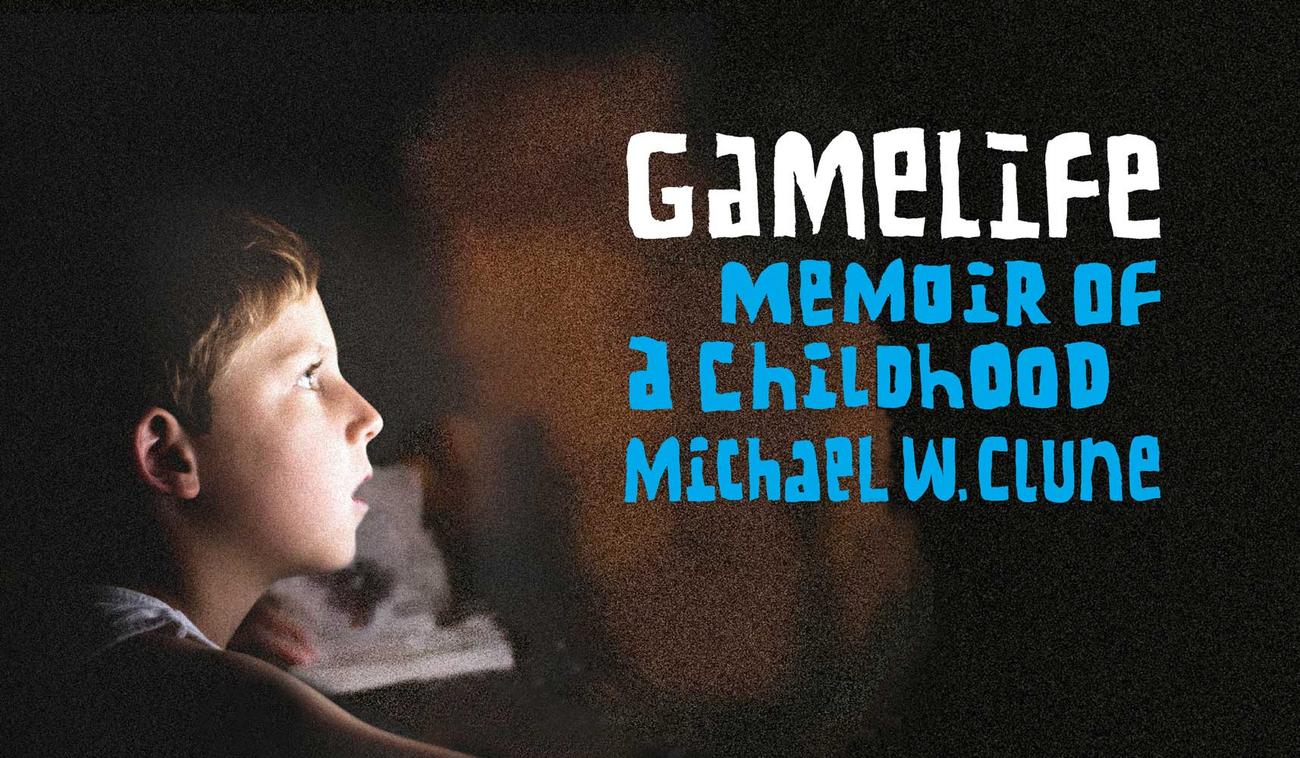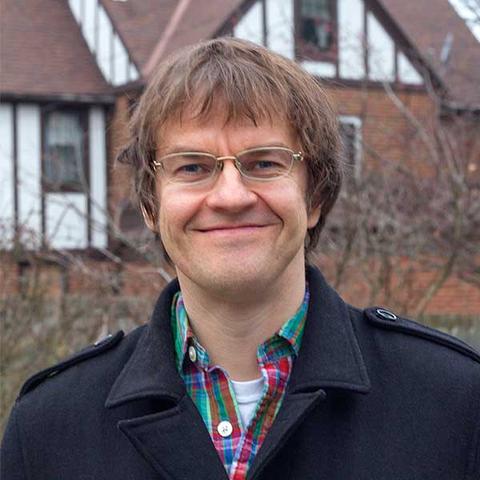
Michael W. Clune is a professor of English at Case Western Reserve University in Ohio. He is the author of a memoir titled White Out: The Secret Life of Heroin and of two scholarly books, American Literature in the Free Market and Writing Against Time. We asked him about how growing up gaming shaped his future as revealed in his exceptional new book, Gamelife: Memoir of a Childhood.
Gamelife begins with your first foray into computer games at the age of seven. Can you tell us a little about the first game that caught your attention?
My first computer game was Suspended, an early text-based game. The description on the back of the box—you are the president of the planet, kept in cryogenic suspension until an emergency arises—mesmerised me. I didn’t know what ‘cryogenic’ meant. I didn’t know what ‘suspension’ meant. I was seven. But the words glowed with a dark magic, and the possibility of becoming something else, something I couldn’t fully imagine, caught me. I think the fact the game was intended for players much older than myself, and that I was never able to get very far into the game, shaped my future relationship to technology. Computer games hooked me by playing hard to get.
Was it easy to access your childhood memories of gaming when writing Gamelife? Did you have any trouble recalling the games or do they remain just as vivid in your mind today?
I began by wanting to write a book about my childhood, but found that many of my memories were frustratingly hazy. Then I found I had these very vivid memories of playing specific games. Those game memories were like a kind of time machine, that opened up the relationships and atmospheres of childhood eras. I tried hard to capture in this book the process of memory, the remembered texture of the games. I did check the internet to get some material—the wording on the back of the Suspended box, for instance—that I couldn’t possibly recall correctly. But this book is primarily about my memories of the games, and how, in memory, the games fused with my childhood, and in retrospect, make uncanny sense of it.

Michael W. Clune, credit: Laura Voss
Of the seven games you explore in Gamelife is there one that stands out as the most influential in your childhood development?
That’s a hard question! I would probably, if pressed, say Elite, the early space adventure game with the wireframe quasi-3D graphics. The experience of crashing to death on the eerie see-through surfaces of planets and space stations gave me one of the strangest and most mysterious experiences of my life. I feel like when I die for real, I will experience a kind of deja vu, thanks to Elite.
Beyond the exploration of gaming, your book also serves as a snapshot of a certain kind of family in America in the eighties. Do you think your experience, from the divorce of your parents to the sense of solace found in computer gaming, was somewhat typical of the time?
I do think that my experience was fairly typical for suburban boys in America. Divorce rates were high—higher than now, according to some research I’ve seen recently—and because my grandparents’ generation didn’t typically divorce, people didn’t quite know how to deal with it. At the time, you know, if you had asked me, I would have told you that my parents’ divorce didn’t much affect me. I think approaching the experience through the lens of the games I played enabled me to get at the curious and oblique ways I was responding to the destruction of my childhood. It let me recover something of the emotional texture of the period, a texture that seems quite alien to me now.
Would it be true to say that you enjoyed a kind of spiritual connection to the games played throughout your childhood?
I would say that the games delivered different kinds of spiritual insights. Most basically, they showed me a way of discovering richness in solitude. As the saying goes, we are born and we die alone. We all need methods of illuminating the spaces we occupy when no one else is around.
How do you respond to the frequent dismissal of gaming as an insignificant activity? Are people wrong to trivialise it?
For many of us games play an important aesthetic role in our lives. After literature and music, games are probably the medium through which I’ve accessed some of my most transformative aesthetic experiences. Of course, sometimes—maybe much of the time—game playing can be just empty time-killing, just as some kinds of reading can be empty. There are good and bad kinds of games, and good and bad kinds of playing. I’ve always stayed away from the massive online multiplayer games like World of Warcraft, for example, because I’ve always had the sense that they wouldn’t be the kind of fun I want in art. But maybe I’m wrong.
Is there a particular type of person who is drawn to the world of gaming? What do you make of the stereotyping of gamers as isolated types who are craving an escape from the ‘real world’?
First, I don’t think escaping from the ‘real world’ is necessarily a bad thing, simply because the ‘real world’ many of us inhabit is ‘real’ only in a degraded, mass-mediated, capitalist kind of way. People often use ‘real’ to mean the opposite of ‘good’, or ‘ideal,’ or ‘fun’, or ‘beautiful’. We have these hopes and dreams, and then we graduate into the ‘real world’. If you can find goodness or beauty somewhere other than the place society and history has given you to toil in, then it’s your moral duty to escape there. And when you come back, you might discover that things look different, less ‘real’.
What would you say to those parents who may be concerned about their child’s gaming habits?
I don’t think I’ve ever regularly played games for more than one or two hours a day. If someone’s playing games for four, five, or six hours a day, I might be concerned. If someone’s doing anything that much I might be concerned. I think it’s important for children to be continuously exposed to a variety of imaginative and aesthetic media. So a games-only diet that leaves them starved of books or music or visual art wouldn’t be good. But anything’s better than the constant texting and social media checking. Children need to know there are ways of communing with the outside superior to simply talking to other people.
You’ve written some brilliant studies of literature and have closely examined the work of Keats, Proust and Nabokov, among many other literary greats.Would you identity yourself as more of an academic or creative writer? How do you find moving between these two styles? What are you working on now?
As a writer, I return again and again to a few central problems—about memory, about money, about obsession. Sometimes those problems are best addressed through academic methods, while sometimes creative writing is the best way to discover something new. I do think the genres can illuminate each other; one becomes a better writer by becoming a better reader, and vice versa. I tend to switch back and forth between academic and creative writing. Right now I’m working on an essay about how poets like Emily Dickinson are able to convince us what it might be like to die. I’m also working on a novel based on my teenage years, but with science fictional elements. These are quite different projects, but they pierce each other in unexpected ways.
Your previous memoir, White Out, deals with your past addiction to heroin. Do you think your childhood passion for games is connected to this more serious dependency?
This is something I’ve just written about in an essay called ‘Are Computer Games Addictive?’ I explain why I think games and drugs are totally different in that piece. The short answer is that games open new worlds, and drug addiction closes every world.
Is there an equivalent obsession in your life today?
I think my core obsessions remain the same: literature, music and games. These are good obsessions; they nourish my relationships with myself, my girlfriend, my colleagues and students. For four years or so in my twenties, heroin froze my life. It’s open again, and games provide some of the windows.
In advance of your trip to Australia in early 2016 to promote Gamelife, what are your expectations about Australia?
I’ve always wanted to go to Australia. I was born in Ireland, where much of my family still lives, and it’s always seemed to me that when people finally decide to leave Ireland, there are two basic options: America or Australia. I’m curious to explore the other option.
Gamelife: Memoir of a Childhood is published next Wednesday 23 September. Pre-order at your favourite bookshop or online now.



